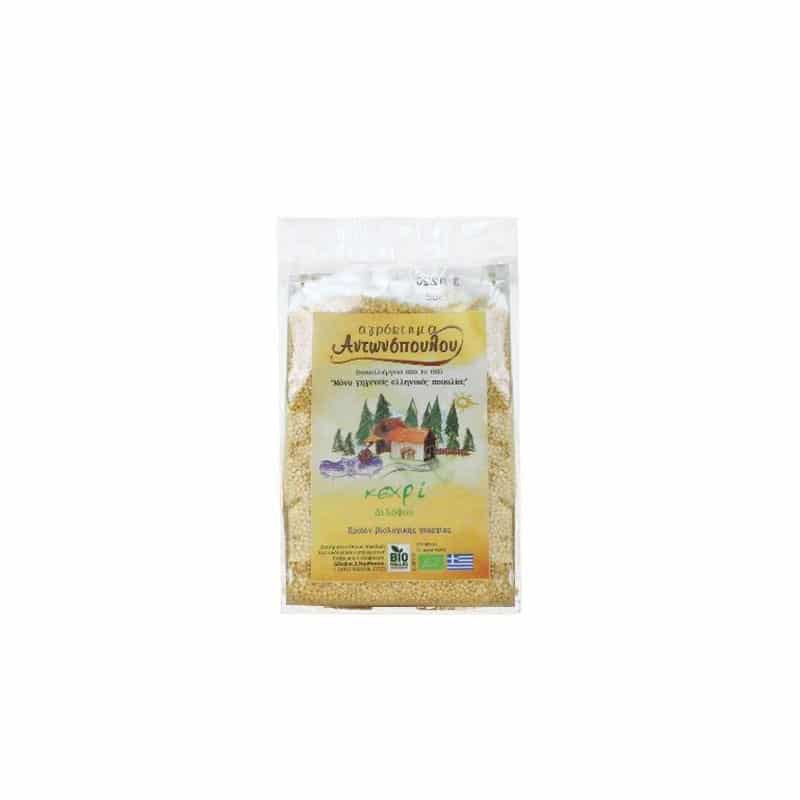Millet from a local indigenous variety of organic farming.
Millet is an annual herbaceous plant and belongs to the Pseudo-cereal family. While millet is one of the oldest crops, its consumption decreased sharply in the 20th century due to the consolidation of other cereals, such as rice, wheat, barley, oats, etc. Recently, however, there is an increase in consumption as new studies bring to the surface new evidence of its numerous benefits to the human body.
The human body is a huge biochemical laboratory. Therefore, the nutritional value of the food that is introduced into it is the key to maintaining its physical well-being and overall health. Food is the ‘fuel’ of the body for the performance of its functions and its quality is essential because it helps the body to maximize its potential and protect its health.
Inclusion of millet in our diet is particularly beneficial and promotes good health as it contains a variety of nutrients with the most important: proteins, polysaccharides, dietary fiber, polyphenols, antioxidants, vitamins and minerals. The presence of all of these ingredients in such a small seed explains why millet holds a prominent place in the food pyramid!
Antonopoulos farm is located in Dilofos, Larissa near Narthakio Mountain, a pure place of great natural beauty and revives many species of local seeds that are in danger of genetic erosion and extinction, always following organic farming methods. In fact, some corps had disappeared completely for decades and needed serious and in-depth scientific research and a series of experiments in the field: such us buckwheat, flaxseed, millet, asparagus, dicoccum, monococcum, etc.




